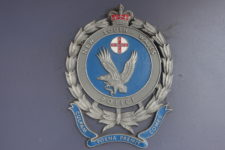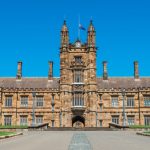The NSW Police Force Has a (Strip) Search Quota System

KPIs and quotas are performance indicators that gained prominence in the late 1980s. They involve management setting ever increasingly high performance targets, which can often fail to be grounded in reality and ultimately, produce poor-quality results.
In everyday life, key performance indicators or fixed minimum targets are associated with crappy fast food, abysmal customer service over the phone, as well as salespeople trying to shove dodgy products down people’s throats.
Although, KPIs and quotas are not readily associated with policing. If they were, one might expect, as elsewhere, that such quotas would result in poor policing – say, a massive surge in strip searching members of the public, with nothing illegal being turned up the majority of the time.
And this is exactly what’s been happening in this state. As NSW Greens MLC David Shoebridge revealed this week, a NSW police program known as the Command Performance Accountability System (COMPASS) involves KPIs, which require local area commands to meet search targets.
This revelation comes on the back of rising concerns within the community about the overuse and misuse of strip searches, which saw a 47 percent rise in their use – accompanied by a 64 percent failure rate – over the four years ending in 2017-18.
“Policing by numbers”
“This is the first time that we’ve had it officially confirmed that the police have targets for searches and for move on powers,” Shoebridge said. “It’s telling police that they must search people, in order to meet the local area command’s quota, rather than address the circumstances on the street”.
The Greens justice spokesperson outlined that while strip searches fall into the same category as regular searches, the quota system is one indication as to why NSW police has – up until now without explanation – dramatically increased its use of strip searches in the field.
Contained in the Law Enforcement (Powers and Responsibilities) Act 2002 (NSW) (the LEPRA), the powers to search people and move them on are discretionary, Shoebridge explained, which means they should only be conducted under conditions set out in the legislation.
“So, to see police having to undertake searches and give move on orders in order to meet quotas – rather than address circumstances in front of them – clearly opens up the use of both of these police powers to serious abuse,” he told Sydney Criminal Lawyers.
Forcing police to execute powers
The information on the COMPASS system was obtained by Shoebridge via supplementary questions put to NSW police minister David Elliott in relation to a Budget Estimates hearing that took place on 29 August this year.
In response, the minister explained that there are a number of targets relating to various offences, as well as move on and search powers. The indicators for the powers display the number of persons subjected to them and there’s a “business plan target.. based on a 3 year average of actuals”.
Search and move on targets are amongst what COMPASS refers to as “proactive indicators”. This category also takes into account drug detection, execution of warrants, successful prosecutions, victim follow-ups, breach of domestic violence AVOs and response times.
Calls for greater oversight
The Redfern Legal Centre (RLC) has called on the Law Enforcement Conduct Commission (LECC) to investigate the impact that policing quotas are having on the rising numbers of strip searches being carried out across the state.
RCL head of police accountability practice Samantha Lee suggests that the quotas are setting up an “unnecessary tension between the public and law enforcement”. And this system would be placing officers on the beat “under enormous pressure”, making “the temptation to cut corners… pervasive”
The LECC launched an investigation into NSW police use of strip searches in October last year. Recently, the sole NSW police oversight body announced it will be specifically investigating the case of a 16-year-old woman strip searched at last year’s Splendour in the Grass festival.
The RLC commissioned the recently released UNSW report Rethinking Strip Searches by NSW Police, as part of its Safe and Sound campaign. UNSW law academics found that police use of strip searches has risen twentyfold since 2006, compared with the financial year 2017-18.
The legal centre also pointed to a situation in Victoria, where local police were found to have carried out 258,000 fake roadside breathalyser tests in May last year, “due to perverse incentives in key performance indicators”.
Assault under any other circumstances
Of course, Victoria police officers blowing into straws to indicate that a non-existent driver has been tested for alcohol is a lot different from here, where members of the public are being forced to strip off in front of armed strangers: a procedure that’s been likened to the crime of sexual act.
Indeed, the NSW Police Force publicly released its Personal Search Manual last month, and it reveals that officers can ask the subject of a strip search to “lift testicles”, “part buttock cheeks”, “lift breasts” and “squat”.
Ms Lee told news.com.au last week that the procedures set out in the manual go way beyond those stipulated in the LEPRA, as the authority to squat and cough, spread buttock cheeks or to turn and face different directions are not part of the strip search protocol contained in the legislation.
(No) policy changes
In relation to Budget Estimates questions asked in August last year, NSW police commissioner Mick Fuller told Mr Shoebridge that there had been no policy changes that could explain why there had been a doubling in the number of strip searches being carried out following a drug dog indication.
And in light of the quota revelations, Shoebridge said that the commissioner’s and the minister’s responses in hearings “have been disingenuous” both in last year’s and the recently held budget estimates, as they’ve been shirking on their obligation to give “frank and honest evidence”.
“We only discovered the existence of quotas on the detailed, forensic supplementary questioning,” the Greens MLC concluded. “This is dreadful management by senior police, and we need the minister and the commissioner to urgently step in and remove these quotas.”







